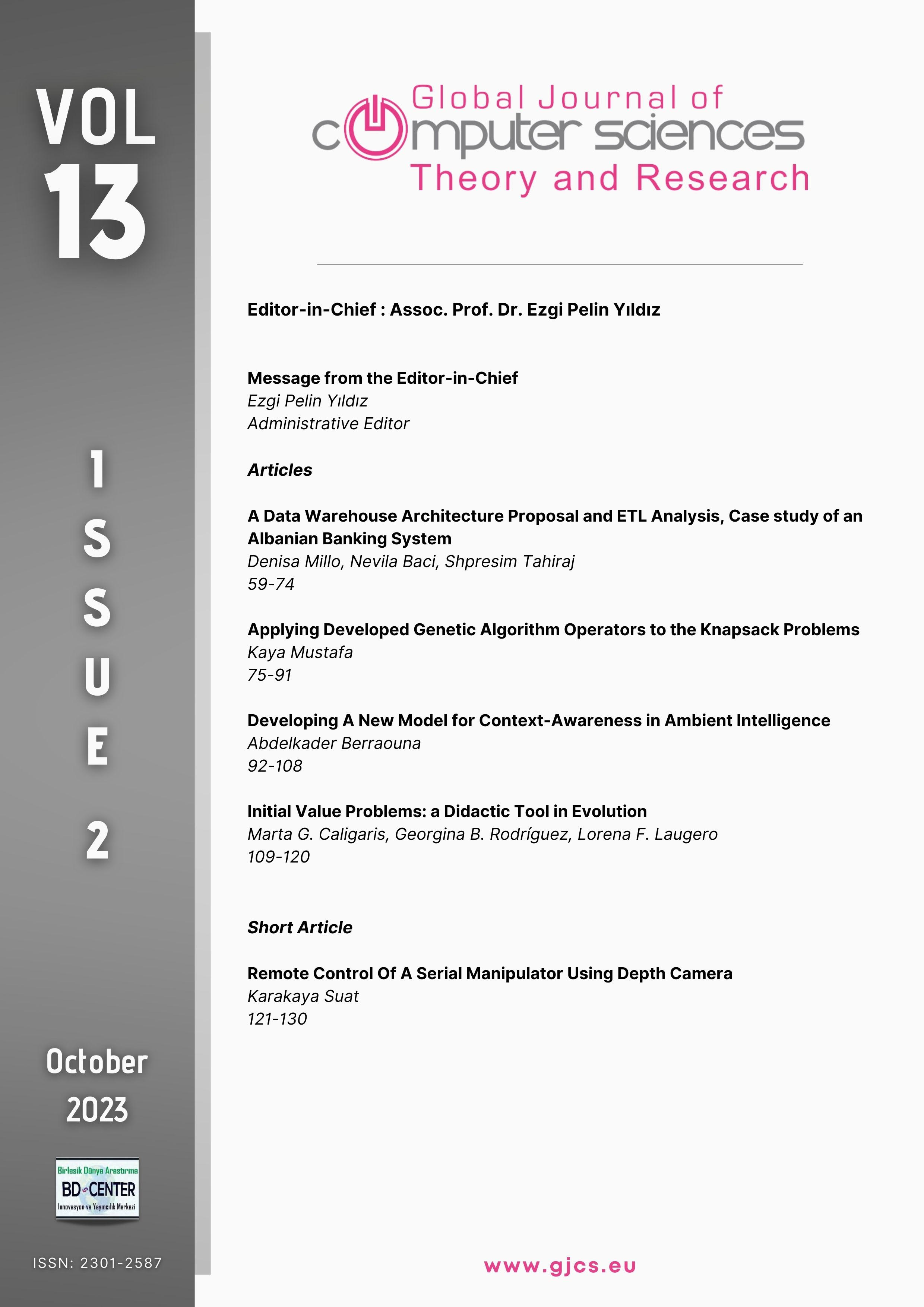Applying Developed Genetic Algorithm Operators to the Knapsack Problems
Main Article Content
Abstract
This study investigated the effect of the previously developed random mixed crossover (RMC), back controlled selection (BCSO), double directions sensitive mutation operators (DDSM), and backward controlled termination criteria (BCTC) on the performance of a genetic algorithm (GA). In the first study, the following three benchmark 0-1, bounded, and unbounded knapsack problems problems were analyzed. In the first stage, the existing operators namely; multi-point crossover operator and tournament selection operator, 1% mutation ratio, and the fitness convergence termination criteria were applied to the benchmark problems. In the second stage of the study, the analysis was conducted by separately applying the previously developed operators, RMC, BCSO, DDSM, and BCTC to the same benchmark problems, and the results obtained from the analysis in this stage were compared with those obtained from the first stage. In the third stage of the study, the previously developed RMC, BCSO and DDSM operators, and BCTC were applied to the same benchmark problems in the same analysis, and the results were compared with those obtained from the first stage. The results of the analysis showed that when the developed operators (crossover, selection and mutation) and termination criteria were collectively used, they were more successful than the existing operators and the developed operators that were separately applied to the benchmark problems.
Downloads
Article Details

This work is licensed under a Creative Commons Attribution 4.0 International License.
Global Journal of Computer Sciences: Theory and Research is an Open Access Journal. All articles can be downloaded free of charge. Articles published in the Journal are Open-Access articles distributed under CC-BY license [Attribution 4.0 International (CC BY 4.0)]
Birlesik Dunya Yenilik Arastirma ve Yayincilik Merkezi (BD-Center) is a gold open access publisher. At the point of publication, all articles from our portfolio of journals are immediately and permanently accessible online free of charge. BD-Center articles are published under the CC-BY license [Attribution 4.0 International (CC BY 4.0)], which permits unrestricted use, distribution, and reproduction in any medium, provided the original authors and the source are credited.
